Your Guide To Air Cleaners and Purifiers
Investing in healthy indoor air quality is a good investment for your body, mind, and wallet. Considering that we spend more than 90% of our time indoors and that indoor air is 2-5 times as polluted as the air outdoors, it’s important to take this indoor air quality problem seriously.
If your indoor air isn’t healthy, it can cause a huge health problem for you and your loved ones. While our modern homes and HVAC systems are more efficient than ever, they also have the unfortunate side effect of trapping indoor air pollutants. That is why mechanical ventilation, air filtration, and air cleaners and purifiers are so important.
While every forced air system has an air filter compartment that traps larger floating pollutants, dedicated air cleaners are usually not included.
Before you make the decision to upgrade your ability to remove indoor pollutants, learn about the different types of air cleaners and purifiers available to you.
Introduction to Air Cleaners and Purifiers
While air cleaners and purification systems may not be necessary for your home, if anyone in the household suffers from allergies, asthma, or other respiratory problems, it’s highly recommended.
Air cleaners and purifiers are installed directly into your existing HVAC system and actually kill the microorganisms in the air, like bacteria and mold spores.
Some air cleaners can remove or reduce odors, smoke, volatile organic compounds, mold spores, and pet dander.
There are many different types of products out there that are designed to improve your indoor air quality.
Here are the three main types of air purifiers:
1. Mechanical Filters
Mechanical filters act as a sieve to capture airborne particulates. They come in a rectangular frame and are given MERV (minimum efficiency reporting value) ratings depending on how effective they are at filtering material.
The higher the MERV rating, the more effective the air filter:
- Low-efficiency filters have a 1-6 MERV rating.
- Medium-efficiency filters have a 7-13 MERV rating (best for residential purposes).
- High-efficiency filters have a 14-16 MERV rating.
- HEPA (high efficiency particle air) filters have a 17-20 MERV rating.
In addition to regular filters, speak with your HVAC provider about specialty filters, such as:
- Activated Carbon Filters – eliminates impurities through absorption.
- Antibacterial and Germicidal Filters – sometimes used with UV-C rays, they can be used alone or incorporated with an existing filtration system.
- Pre-Filters – make your primary filter last longer by capturing all of the larger contaminants before making contact.
Do not purchase any high-efficiency, HEPA, or “specialty” filters without speaking with a qualified technician such as ones here at Action Air first. Professional modifications may be required to accommodate the thicker filters.
2. Electronic Air Cleaners
There are two main types of electronic air cleaners:
Ion generator
Ion generators disperse negative ions into the air. The ions attach themselves to positively-charged particles and then land on the surfaces in your home. When you clean the surface, the particle is removed.
Electronic precipitator
Electronic precipitators also use ions to charge particles, but do so by drawing the air into an ionization section. Once inside the ionization section, the particles become charged, then collect on oppositely-charged metal plates.
3. UV Germicidal Lights
Ultraviolet lights emit UV-C rays, which kill microorganisms by scrambling their DNA and RNA. Ultraviolet light has been used for decades to sterilize food, water, and air. While UV lights do not filter anything, they can effectively kill living organisms, such as mold, fungi, and bacteria.
UV lights are installed directly into your return ducts to clean the air before it comes into contact with the air filter or indoor air handler. UV lights not only improve indoor air quality, they also improve the efficiency and longevity of your HVAC system.
Make sure you supplement your UV lights or any other air cleaner with an effective air filter.
Air Filtration + Purification
For the best indoor air quality, you want to combine effective air filtration with a quality air purifier. Air filters are able to eliminate larger particles, such as dirt, dust, and hair while air purifiers can take care of odors, bacteria, mold, and other smaller particulates.
In addition to improving your indoor air quality, air filters, cleaners, and purifiers also increase energy efficiency and reduce wear and tear on your HVAC system.
If you want to target indoor contaminants, both large and small, speak with a professional about incorporating both of these IAQ technologies. While the options can seem overwhelming, our team of experts can inspect your home, provide recommendations, and answer all of your questions.
